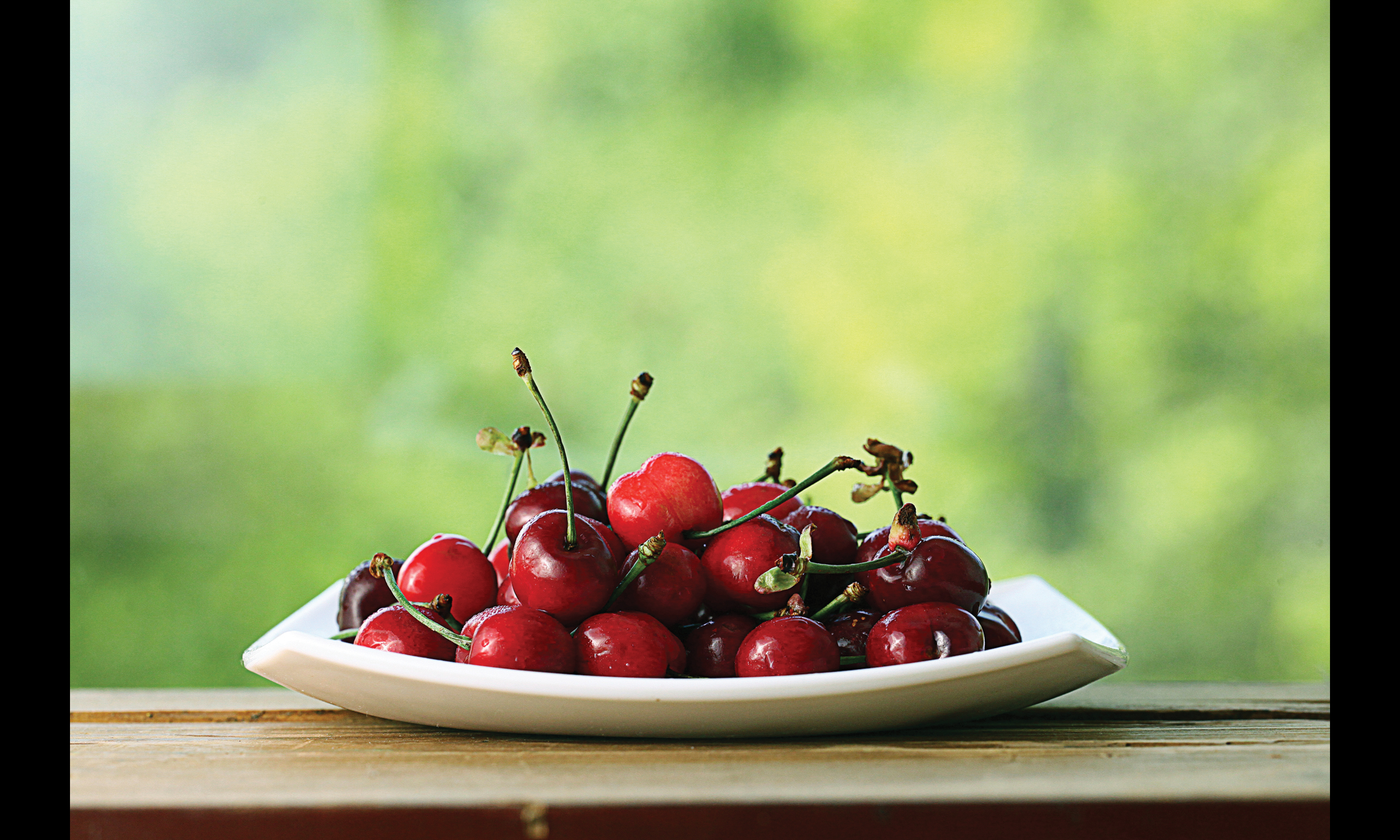Cherry lovers everywhere, rejoice! It turns out cherries, specifically tart ones, are remarkably good for one’s health and the benefits are backed by research. Learn why this superfruit should be important to you and your shoppers.
Health Benefits and Research
According to research done by Oregon Health and Science University, tart cherry has some of the highest antioxidant and anti-inflammatory compounds of any previously studied food (1). Tart cherry has uniquely high amounts of anthocyanins (which give the tangy fruit its vibrant red color) and other flavonoids, making it a superior defense for several aspects of one’s health. However, it is important for shoppers to consult a medical professional with any health concerns regarding just how much cherry to safely consume.
Here are some quick findings from recent studies on tart cherry.
Joint support. A study done by Arizona State University, in which 10 participants drank eight ounces of 100% tart cherry juice daily over the course of four weeks, found that the extract helps reduce uric acid levels, which are the cause of inflammation-based conditions such as gout (2).
Data from Oregon Health and Science University revealed that tart cherry had effects similar to those of  pain-relief medications, and could actually help alleviate some of the unwanted side effects of those medications (3). Twenty osteoarthritis patients (ages 40–70) drank tart cherry juice twice daily for three weeks and experienced significant pain reduction (up to 20% reduction in some people), even in the most severe cases (3).
pain-relief medications, and could actually help alleviate some of the unwanted side effects of those medications (3). Twenty osteoarthritis patients (ages 40–70) drank tart cherry juice twice daily for three weeks and experienced significant pain reduction (up to 20% reduction in some people), even in the most severe cases (3).
Cardiovascular health. Research from the University of Michigan Health System shows that the anthocyanins in tart cherry can help counteract the stroke risk associated with taking a class of drugs called PPAR agonists, which are used to treat cardiovascular disease and type-2 diabetes (4, 5).
In addition to inhibiting the stroke risk caused by the PPAR agonists, tart cherry has been shown to promote natural PPAR activation in tissue as well (5, 6). Also, a study done with both obese and lean rats showed that tart cherry, when coupled with a high-fat diet, resulted in less belly fat buildup compared to rats that did not consume any tart cherry (5, 6). Belly fat is hazardous to the heart and can be a precursor to developing type-2 diabetes. Tart cherry may also be a great fruit choice for people with sugar sensitivities, with a physician’s approval.
Brain and nerve support. Tart cherry is said to help those with chronic pain associated with fibromyalgia (5).
Meanwhile, a neuroscientist at Central Michigan University found that tart cherry may support healthy brain function. Although it is not a treatment for disease, it may also support brain health in those with Alzheimer’s and Huntington’s diseases (7). Studies suggest the superfruit’s antioxidants may improve mitochondrial function in cells, which is crucial for cognitive support (7).
Post-workout soreness and muscle recovery. Athletes can use tart cherry as a post-workout supplement to promote muscle recovery. According to research conducted by Oregon Health and Science University, long-distance runners who consumed tart cherry during training experienced less pain after exercising than those who did not take any tart cherry (8). In another study on a branded extract, researchers found those taking cherry juice extract had less muscle soreness after lifting weights than those who consumed a placebo (9).
Sleep support. Researchers have concluded that due to its naturally high levels of melatonin, a hormone that regulates sleep patterns, tart cherry makes for a great natural sleep aid (10). In one study, individuals taking the supplement had increased total sleep time and sleep efficiency than those on a placebo. WF
References
1. Bowling Green Daily News, “Research Outlines Many Health Benefits of Cherries,” July 13, 2015, www.bgdailynews.com/features/research-outlines-many-health-benefits-of-cherries/article_f9251154-42bc-5230-b4e0-7ef36aa3ff78.html, accessed Nov. 4, 2015.
2. K.R. Martin, et al., “The Effect of 100% Tart Cherry Juice on Serum Uric Acid Levels, Biomarkers Of Inflammation And Cardiovascular Disease Risk Factors,” FASEB Journal, 25: 339.2 (2011), www.fasebj.org/cgi/content/meeting_abstract/25/1_MeetingAbstracts/339.2?sid=0abdf691-fd4f-4c51-8307-8f43730e5350%22, accessed Nov. 4, 2015.
3. G. Rattue, Medical News Today, “Osteoarthritis Patients May Benefit from Drinking Tart Cherry Juice,” June 1, 2012, www.medicalnewstoday.com/articles/246114.php, accessed Nov. 4, 2015.
4. ScienceDaily, “Tart Cherries Linked To Reduced Risk of Stroke,” April 23, 2013, www.sciencedaily.com/releases/2013/04/130423102129.htm, accessed Nov. 4, 2015.
5. Dr. Mercola, “What Are Cherries Good For?” Aug. 2, 2014, http://articles.mercola.com/sites/articles/archive/2014/08/02/health-benefits-cherries.aspx, accessed Nov. 4, 2015.
6. ScienceDaily, “Tart Cherries May Reduce Factors Associated with Heart Disease and Diabetes,” Aug. 10, 2008, www.sciencedaily.com/releases/2008/04/080407114647.htm, accessed Nov. 4, 2015.
7. P. Egan, Detroit Free Press, “Michigan Cherries Could Help Treat Brain Diseases, Research Shows,” Jan. 13, 2014, http://archive.freep.com/article/20140113/NEWS06/301130014/michigan-cherries-brain-disease, accessed November 4, 2015.
8. K.S. Kuehl, et al., “Efficacy of Tart Cherry Juice in Reducing Muscle Pain During Running: A Randomized Controlled Trial,” J. Int. Soc. Sports Nutr. 7: 17 (2010).
9. “Tart Cherry Soothes Soreness After Exercise,” WholeFoods Magazine 39 (1), 42 (2016).
10. G. Howatson, et al., “Effect of Tart Cherry Juice (Prunus cerasus) on Melatonin Levels and Enhanced Sleep Quality,” Eur. J. Nutr. 51 (8), 909–916 (2012).
Published in WholeFoods Magazine February 2016









